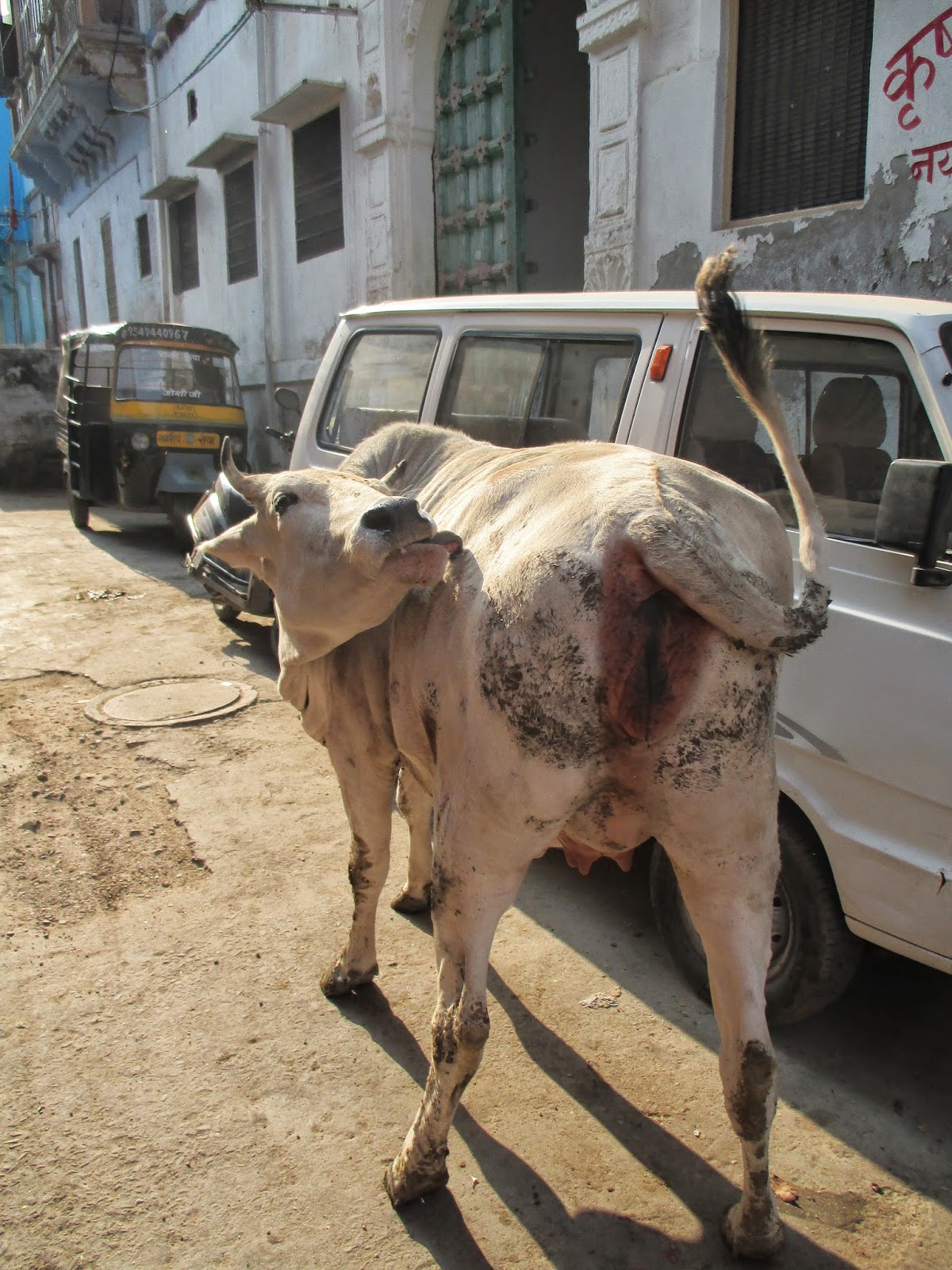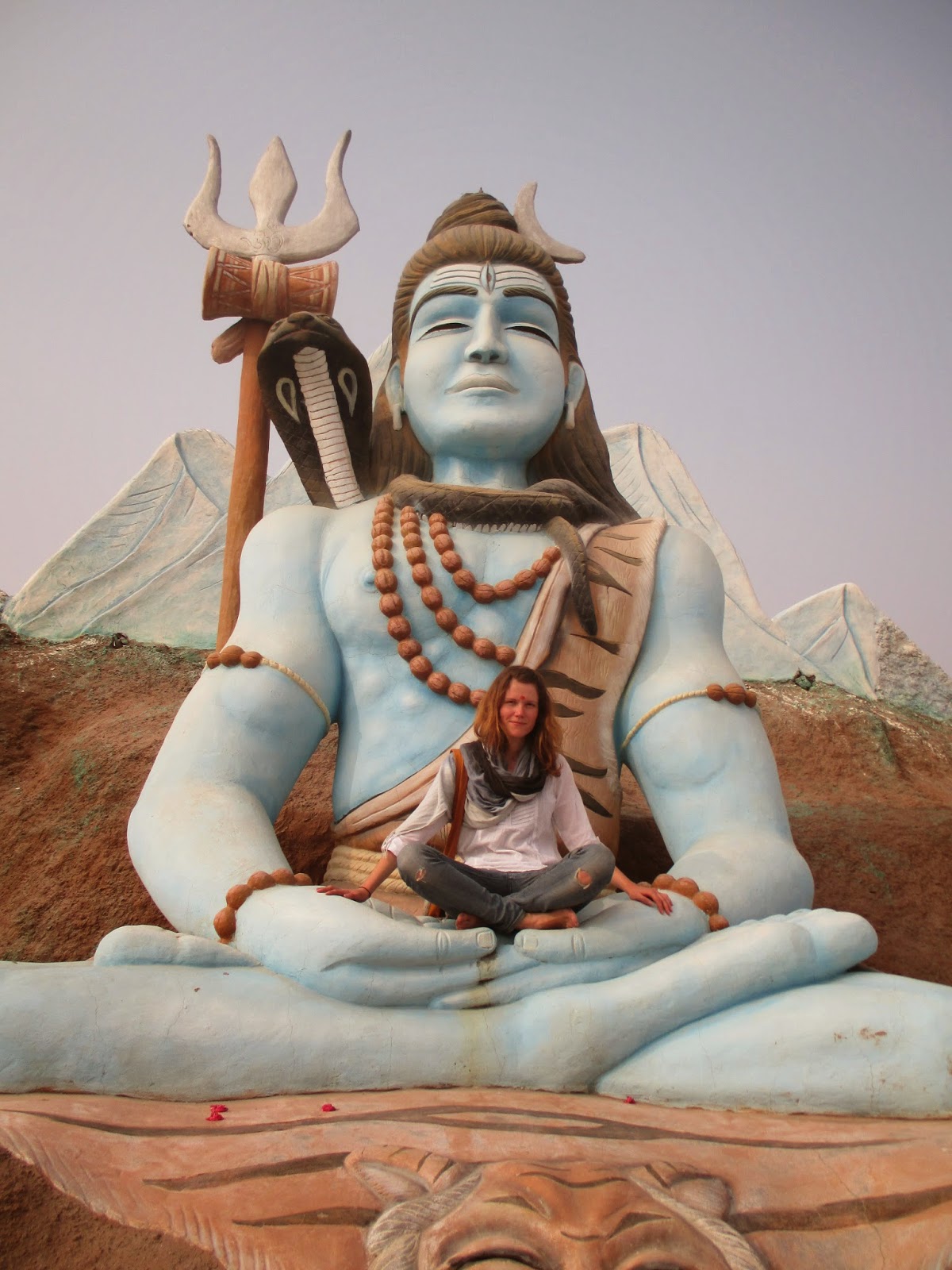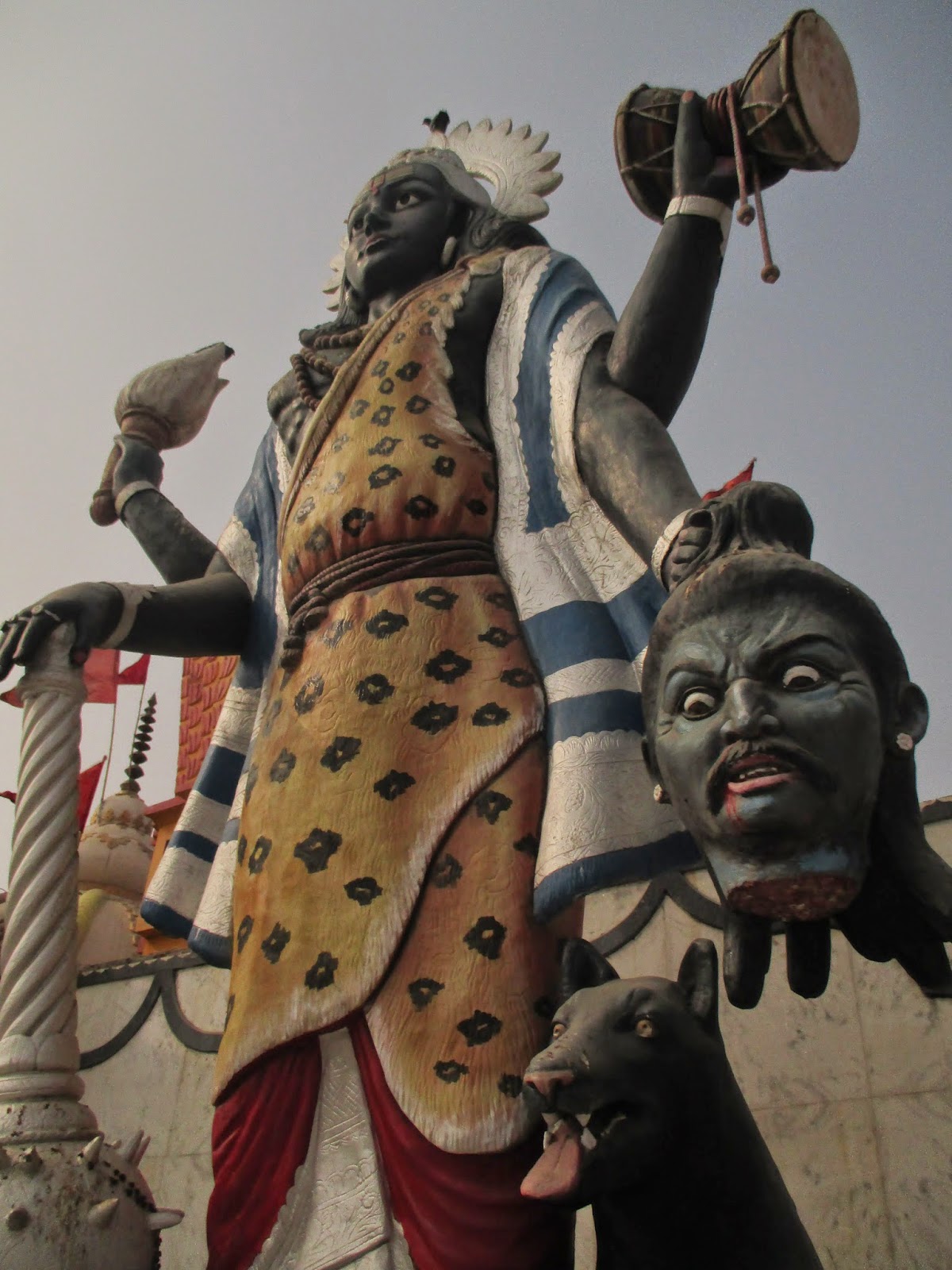Nicolas
Craving and aversion...impermanence...remain equanimous...sometimes through both the nostrils simultenously...
4am. The bells ring outside. I open the eyes and stand up. In the bathroom I prepare a bucket of cold water. I stand for a few seconds, maybe a minute in front of the bucket. I breath, take a few handfull of this freezing water to wet my whole body, and soap everything. I look at the water left in the bucket. I take it with both hands and raise it in front of me. I have a thought for those times when I've been jumping in the snow after sauna, before to pour the whole bucket on my head. Fastly I dry, dress up and go to Dhamma hall.
Crossed-legs I will sit here for many hours today. After a cold shower I feel completly loaded. I could do anything, running, cutting wood, cooking, or I could be at school with a group of kids. Instead of that I go sitting and remain still until breakfast. Sometimes the record player tell us more about the technique. Observe the breath...be aware of the sensations through all the body...the true nature of those sensations is the nature of arising and passing away...arising and passing away... It is hard to concentrate, as the morning brings up sensual inspirations.
During 10 days we have been following the Vipassanā meditation courses. Vipassana is a technique in which one focus on his sensations, to be aware of them and to keep a healthy mind. It's not something abstract or spiritual at all. However Vipassana courses are known for being rather strict and tough. For 10 days, interdiction to speak, to use any form of communication, to have physical contact, to observe religious practice, etc.. Everyday waking up at 4am and going to bed at 9pm, we managed to fit about 10 hours of daily meditation between those times.
My main worry before starting the course was the food. The 3 meals were at 6am, 11am and 5pm and are strictly vegetarian. But the food during the 10 days was truly great. It was tasty and various, and we had possibility of making as much refill as necessary.
On the first days we observed only the breathe. This was hard. I could not stay on my own breathe more than a couple of minutes before my mind starts wandering away. But on the second or third day I experienced amazing sensations in my nose, like if I was feeling each single pores of my nose. In the middle of the week we started observing different parts of the body.
After 10 days, silence is over. And so one can speak to his roommate for the first time. It is funny then to hear my own voice. Like the voice of someone else. I went through the 10 days without breaking the rule of noble silence. I didn't even went to speak to any assistant teacher (although this was allowed). During the whole last day when silence was broken, I felt extremly euphoric. On this day I also got to know that there is possibility to have very hot water in the common bathroom. I had then a painful thought for each of my mornings.
Tince
On the very first evening as I enter my room I find a huge, hairy spider chilling out on the wall. The law of noble silence is being broken immediately as I have to cooperate with my roommate to get rid of the monster. Later on it turns out that our residential quarters are full of those. It seems that this week will be more challanging than I expected.
First three days we spent just observing our breath and concentrating all our attention on always smaller and smaller area around the nostrils. Me and my breath aren't very good friends for a long time already, this is not for me, I'm thinking. Mind that should be concentrating only on my nostrils is wandering from one thought to another without any sensible order. It seems that a human mind is one huge garbage pile, bigger than Getliņi or Delhi market, one can find anything necesarry and unnecesarry there! Maybe I should leave here and now, this idea doesn't let me alone for all the three days.
On the fourth day we have sharpened our concentration and are ready to start learning vipassana meditation technique. So all this torment was just the beggining, a training course? I'm worried about what will follow, but vainly. From now on we have to examine all our body part by part paying attention to any sensations. As there are more things to focus on, it gets easier to stay attentive. Even sitting in lotus position becomes a bit easier, sometimes I manage to sit for 30 minutes still (teacher demands one hour). I do not hasten desperaingly to the yard for stretching myself on each five minutes break anymore. Walking back and forth in the beautiful garden of the centre now seems enough to take rest between long meditation hours.
Following days went like a roller-coaster, up and down, up and down. Joy about succesful meditation and excitement about the benefits I will get out of it, despair about the pain in knees and back, "wrong" breath, drowsiness. Pictures from past and future rising up in my wandering monkey mind annoy me and as time passes I start to group them by topic acquiring a mental mosaic of myself. It's not an inspiring job. Remain purrrfect equanimity, purrrfect equanimity, I hear the voice of the teacher and go back to observing bodily sensations. From one part to the next one, next one... Everything is impermanent, one should not worry over bad luck as those worries will only multiply ones misery; one should not generate cravings for the goods of life as they will also pass.
For the ones worrying that I will return from this trip "too enlightened" and for the ones being interested in trying it themselves, please check www.dhamma.org . Even though this meditation technique is said to be the same that Gautama Buddha has been practising, it is not attached to any religion or sect. It doesn't involve any religious rites and rituals or cult of any personality and emphasizes that only ones own work and experience on this path matters. So even such a sceptical person as me can find it attractive.
The speed of time slows down again on last days of the course. I can't focus on meditation anymore as the only thing I think is - it's soon over! Soon I can go out of the yard, I can talk, I can meet Nicolas, I can finally ask the name of my roommate, oh, I won't have to sit with crossed legs anymore! The tenth days is an adaptation period before leaving to the outside world.












































